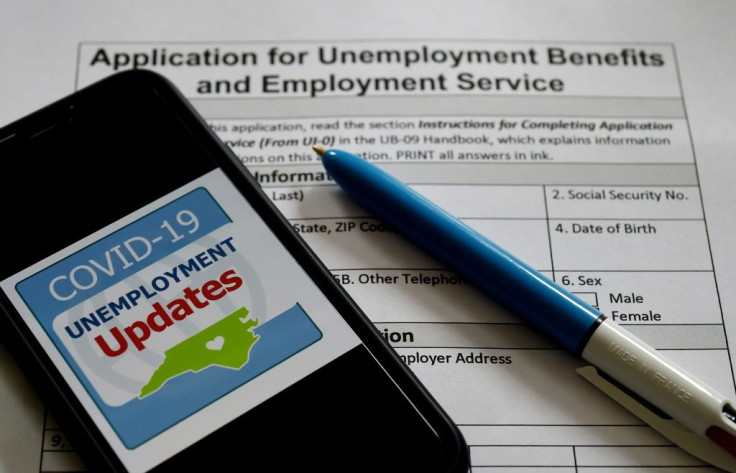GOP Coronavirus Stimulus Plan Called ‘Inadequate,’ Devastating To Families And Economy

KEY POINTS
- Republicans unveiled their plans just days before the expiration of the pandemic unemployment benefit
- If nothing is in place before the end of the month, unemployment benefits could drop as much as 80% in some states
- The Federal Reserve extended its lending facilities through the end of the year to keep the economy afloat
Economic analysts Tuesday panned Republican proposals for the next round of coronavirus relief, calling the HEALS Act inadequate and predicting it will devastate families and the economy.
Century Foundation senior fellow Andrew Stettner said just cutting unemployment pandemic compensation from $600 to $200 before capping benefits at 70% of an individual’s precoronavirus salary would have a “dire” impact on 25 million people, costing families more than $10 billion a week. Additionally, experts have said the changes would take months to implement.
The Republican package came in around $1 trillion, less than a third of what House Democrats approved in May, and was proposed with less than a week to go before the expiration of programs created in March at the start of the pandemic.
Among the provisions are $16 billion for testing, $26 billion for the development and distribution of vaccines, $105 billion for schools, $20 billion for farmers and ranchers, and $30 billion for the defense industrial base. The bill also provides for $1,200 stimulus checks to taxpayers, and funds for F-35 fighters and a new FBI building near President Trump’s Washington hotel.
“I never thought I would say this and I know it is hard for most to get their arms around the magnitude of the crisis, but $1 trillion is not enough to get us to the other side of this crisis,” tweeted Diane Swonk, chief economist at Grant Thornton. “@federalreserve needs more help from DC to blunt blow of COVID.”
The Federal Reserve on Tuesday extended its lending facilities through the end of the year to help provide stability to businesses, along with state and local governments as the pandemic surged across the country, threatening a new wave of shutdowns and layoffs.
Swonk said the nation is facing a humanitarian and economic crisis, and swung back at those opposed to “stimulus handouts.”
Actually, the checks helped provide money for rent and food. There was some spent on used cars which helped the new care market - trade in values.
— Diane Swonk (@DianeSwonk) July 28, 2020
We are looking at a humanitarian and economic crisis that is already tragic. “Stimulus” is the wrong work but we do know if helps. https://t.co/PZrUeRs8Eb
Stettner noted unemployment benefits could drop as much as 80% in some states if the Republican alterations survive, with the cut dropping the average national payment from $920.68 a week to $520.68. Ironically, the states that would be hit hardest are where the virus is surging the most, including Oklahoma, Florida, California and Mississippi.
“Arizona, California, Florida Georgia, Illinois, Massachusetts, Michigan, New York, Pennsylvania and Texas all would lose more than $3 billion each over the next two months,” Stettner said.
The Tax Foundation predicted any compromise legislation will jettison the Republican proposal to expand the tax deduction for business meals and Democratic efforts to repeal the state and local tax deduction limitation. The GOP plan also omitted Democratic plans for expanding the Child Tax Credited, the Earned Income Tax Credit and federal aid to state and local governments.
Democrats have voiced opposition to Republican hopes for liability protection for businesses and schools from lawsuits claiming exposure to the virus.
The National League of Cities called the draft legislation "out of touch witht he grim reality facing communities.
“Today’s proposal ignores not only the warnings of local leaders, but also those of economists who have cautioned lawmakers about the devastating long-term impacts of failing to address local government revenue shortfalls," NLC CEO and Executive Director Clarence Anthony said in a statement.
© Copyright IBTimes 2025. All rights reserved.






















